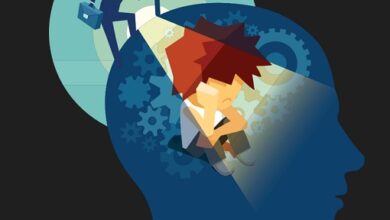Difference between disorder and disease Similarities and FAQs
Disorder and disease
In this article we will provide you the difference between disorder and disease, Similarities and FAQs.
What does disorder mean?
The word disorder refers to an alteration or dysfunction in the normal functioning of something. These dysfunctions can be related to mental health, human behavior, emotions and feelings, or a healthy physical body. These disorders are common among people of all ages and social backgrounds, from children to adults. The most common types include depressive and anxiety disorders , autism spectrum disorders, antisocial personality, and eating problems. Some people also suffer from physically visible symptomssuch as chronic muscle pain or epileptic seizures. Treatment for this condition varies widely depending on the degree and location of the particular problem; however, behavioral therapy has proven helpful for many people dealing with these kinds of situations.
What does disease mean?
Disease is an abnormal health condition or disorder that can be caused by infectious agents, genetic defects, nutritional deficiencies, physical trauma, or metabolic disturbances . An illness can have visible symptoms, such as pain and fatigue; however there are also “silent” diseases that do not show any external signs but affect the general well-being of the patient. The diagnosis of a disease requires the clinical and historical evaluation of the patient as well as medical tests to confirm the condition and establish the appropriate therapeutic plan. Prevention is essential to stay healthy: avoid contact with infected people, lead a healthy lifestyle and have the corresponding medical check-ups according to your age.
Similarities Between Disorder and Illness
The words disorder and disease are often used interchangeably, as both refer to a state of malaise or malfunction of the body. However, there are some key differences between the two words. A disorder is a general medical term for an abnormal condition that causes physical or mental symptoms , while a disease is usually much more serious and dangerous. For example, anxiety is commonly considered a mental disorder; however, cancer is generally considered a disease due to its potential lethality. It’s clear that the terms are similar but not identical: while both imply significant health problems, there are different levels of severity involved with each community was welcomed with affection by its members. To distinguish himself from the others, the neophyte wore white clothing. In Christian religious terminology.
Differences between disorder and disease
The words disorder and disease are related but have different meanings. A disease is a medical condition that can be detected by its symptoms, diagnosis, or laboratory tests. Rather, a disorderIt is a mental or emotional problem that affects the way people behave, think, and feel. Most mental disorders are serious disorders such as clinical depression, anxiety, or other similar types. The disorders generally have no visible physical signs and are usually identified with the results of medical tests or interviews conducted by qualified healthcare professionals. In short, the main distinguishing factor between these two words is that diseases usually involve some physical manifestations while disorders often refer to mental problems or abnormal changes in human behavior.
Frequent questions about disorder and disease
What does the term disorder mean?
A disorder is an abnormal psychological or physical condition that causes significant symptoms and disturbances in daily life. This includes issues like anxiety disorder, depression, eating disorders, bipolar disorder, and other medical issues.
What is the difference between a disease and a disorder?
The difference between a disease and a disorder is that a disease usually refers to something physical whereas a disorder can be both physical and mental. Diseases are caused by external or internal infectious agents, while disorders can be caused by genetic, environmental, or other non-infectious triggers.
What are the types of disorders?
Mental disorders are classified into several main categories, including: – Mood disorders (depression, bipolar disorder) – Anxiety disorders (generalized anxiety disorder, specific phobias) – Developmental disorders (attention deficit disorder with hyperactivity, autistic disorder). – Eating disorders (anorexia nervosa, bulimia nervosa) – Psychosis (schizophrenia and other psychotic disorders) – Drug and alcohol addiction.


